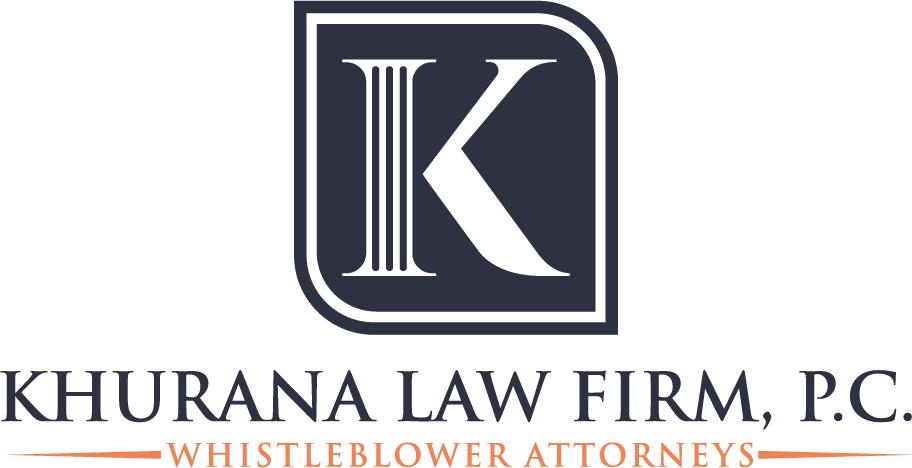
What kind of reward might a healthcare whistleblower cases receive?
Healthcare whistleblower cases. There are many factors that come into play when it comes to receiving a reward for bringing forth a successful whistleblower lawsuit. Rewards are dependent on the type of case and what particular program or act the suit or claim is filed under. For instance, there are specific guidelines that determine if a whistleblower case is to be filed under The False Claims Act, Securities and Exchange Commission, Commodity Futures Trading Commission, or the IRS. The most common whistleblower cases (also known as a qui tam lawsuit), that originate from the healthcare industry, usually involve fraud against the Medicare or Medicaid systems. Individuals who have evidence of Medicare or Medicaid fraud may be eligible to receive monetary compensation as a reward under The False Claims Act. Bringing your case to a healthcare whistleblower lawyer will help you stay protected from any potential retaliation and assist you in putting forth a strong case.
Healthcare whistleblower cases who report fraud or other illegal activities may be eligible to receive a reward under various whistleblower reward programs, including those established by the False Claims Act, the SEC Whistleblower Program, and the IRS Whistleblower Program.
Under the False Claims Act, healthcare whistleblower cases who file lawsuits on behalf of the government can receive between 15% and 30% of any recovered funds. The amount of the reward is based on several factors, including the significance of the information provided by the whistleblower, the level of assistance provided to the government, and the extent to which the healthcare whistleblower cases faced retaliation or other negative consequences for coming forward.
The SEC Healthcare Whistleblower Cases Program offers rewards to individuals who provide original information about violations of securities laws, including healthcare fraud committed by publicly traded companies. Whistleblowers may receive between 10% and 30% of any monetary sanctions collected by the SEC as a result of their information.
The IRS Healthcare Whistleblower Cases Program offers rewards to individuals who provide information about tax fraud or other illegal activities that result in the collection of taxes, penalties, and interest. Whistleblowers may receive up to 30% of the collected proceeds, with no cap on the amount of the reward.
Overall, the potential for significant financial rewards can serve as a powerful incentive for healthcare whistleblower cases to come forward with information about fraudulent activities in the healthcare industry, helping to protect patients and taxpayers from the harmful and costly effects of such activities.
What does the potential compensation look like for a healthcare whistleblower?
No matter what healthcare whistleblower cases program a claim is submitted under, rewards are a certain percentage of the amount of money that is recovered for the government, not the total amount of money that the government has lost. Specifically, healthcare whistleblower cases under the provisions of The False Claims Act, could receive anywhere between 15% – 30% of the total amount recovered. There are, however, other factors that help determine the actual percentage that will be the reward to the whistleblower, includiing whether or not the government joins the case, the strength of the evidence that’s supporting the false claim, and ultimately, the support that’s put into the case by the whistleblower and by the lawyer that is representing the healthcare whistleblower cases.
The potential compensation for a healthcare whistleblower cases can vary depending on the nature of the case and the laws of the jurisdiction where the case is being heard. In the United States, for example, there are several federal and state whistleblower laws that provide for compensation to individuals who report fraud, waste, or abuse in the healthcare industry.
Under the federal False Claims Act, a healthcare whistleblower cases can receive between 15% and 30% of any monetary recovery obtained by the government as a result of their disclosure. The amount of the award depends on several factors, including the extent to which the whistleblower contributed to the investigation, the significance of the information provided, and whether the whistleblower tried to stop the fraud before filing a claim.
In addition to the False Claims Act, there are other federal whistleblower laws that provide for compensation, including the SEC Whistleblower Program and the IRS Whistleblower Program.
In some cases, healthcare whistleblower cases may also be entitled to protection against retaliation by their employer. This can include reinstatement, back pay, and other damages.
It’s important to note that pursuing healthcare whistleblower cases claim can be a complex and lengthy process, and there is no guarantee of success. Whistleblowers should consider seeking the advice of an experienced attorney before deciding to come forward with information about healthcare fraud or abuse.
What could compensation look like if the Government decides to join the case?
When a lawsuit is brought forth under The False Claims Act, the next step would be for the Government to initiate its own investigation of the presented case. Once the case has been investigated, the Government will then decide if they’d like to step in as the plaintiff in the case. If the government joins the case, the expected reward is 15% – 25% of the recovered funds, with the additional consideration of the aforementioned contributing factors. If the government decides not to take on the case, and if the whistleblower decides to go ahead and move forward with the case, the whistleblower could then receive a reward of 25%-30% of recovery.
If the government decides to join a whistleblower case, the potential compensation for the whistleblower can be significant. Under the False Claims Act, if the government decides to intervene in the case, the whistleblower can receive between 15% and 25% of any monetary recovery obtained by the government, depending on the extent of their contribution to the case.
If the government declines to intervene in the case, the whistleblower can still pursue the case on their own, known as a “qui tam” lawsuit. In this scenario, the whistleblower can receive between 25% and 30% of any monetary recovery obtained in the case, again depending on the extent of their contribution to the case.
In addition to the monetary award, whistleblowers who prevail in False Claims Act cases may also be entitled to reimbursement for any expenses incurred in pursuing the case, including attorneys’ fees.
It’s important to note that the amount of compensation in a whistleblower case can vary depending on the specific facts of the case, the extent of the wrongdoing, and the outcome of any settlement or trial. Whistleblowers should consult with an experienced attorney to get a better understanding of the potential compensation they may be entitled to in their specific case.
Who is responsible for paying for the reward of the whistleblower?
If a whistleblower lawsuit is successful, the federal government is responsible for paying the reward to the whistleblower. This will be a percentage of the total amount recovered to the government. The total amount recovered could include treble damages (which is an amount of $3 for every $1 the government lost as a result of the fraud) and penalties for the claim.
The responsibility for paying the reward of a whistleblower depends on the specific law under which the whistleblower is making their claim.
Under the federal False Claims Act, for example, the reward is paid out of the monetary damages recovered by the government in the case. Specifically, the whistleblower is entitled to receive between 15% and 30% of the amount recovered by the government, depending on the extent of their contribution to the case.
In cases where the government declines to intervene and the whistleblower pursues the case on their own, the reward is paid out of the damages recovered by the whistleblower.
In either case, the reward is paid by the party or parties found to be liable for the fraud or misconduct in question. This could include healthcare providers, hospitals, pharmaceutical companies, or other entities that are alleged to have engaged in fraudulent activities.
It’s worth noting that the reward paid to the whistleblower is separate from any damages that may be awarded to the government or other plaintiffs in the case. The reward is intended to incentivize individuals to come forward with information about fraud and misconduct, and to compensate them for the risks and costs associated with bringing such information to light.
Arvind Bob Khurana, national whistleblower attorney, helps people from bringing forth healthcare-related fraud.
At Khurana Law Firm, it is a part of the firm’s mission to use their knowledge and resources to build a strong case that will help whistleblowers receive a reward for aiding the government to fight against fraud. Contact us today for a free consultation.




